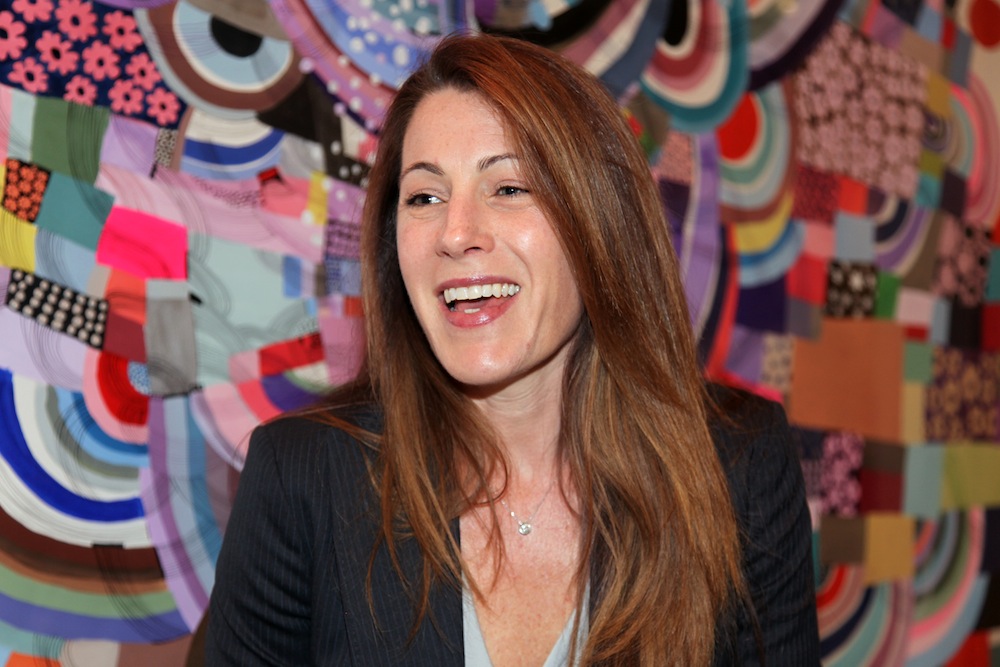
Robyn Thomas is the executive director of the San Francisco-based Law Center to Prevent Gun Violence. Before participating in a panel on how to break the deadlock in the gun debate, she talked in the Zócalo green room about how to gift a 3-year-old, the South African obsession with nicknames, and why her job offers no easy answers.
What’s your favorite thing about Los Angeles?
The weather of course! It’s perfect here. I left San Francisco, it was gray and foggy, and I got here, and it was a gorgeous blue-skies day. And my hotel looks over the ocean, so I feel lucky to be here.
What’s the best gift you’ve given someone else?
I gave my 3-year-old a piñata for his birthday last week, and I have not seen anyone so happy in a really long time. He kept saying, “Mommy thank you for this wonderful piñata.” I think for a 3-year-old the idea of a piñata filled with candy is pretty dreamy.
What profession would you practice in your next life?
I would have liked to be a psychologist. I really enjoy approaching life from the perspective of how people think and feel and what motivates them. That’s an area that has always intrigued me and that I’d love to know more about, and to help people live better, more mentally healthy lives.
Did you have any nicknames as a kid?
Yes. I was born in South Africa. South Africans are renowned for their nickname-iness. I was Robs, Robby—anything with an “e” on the end. My family still calls me all those names and never uses my full first name, and they all have similar nicknames for themselves. It’s a very South African thing I think.
What’s your favorite South African food?
Durban curry. And biltong. Durban curry is a particular curry from South Africa that’s absolutely delicious, and biltong is their version of dried meat, but it’s usually made from different types of game. Offensive to all vegetarians, and it’s delicious.
What’s the hardest question you have to answer when you talk to people about guns and policy?
The hardest part of this issue is that, with all the policies that we talk about, there’s no panacea—there’s no simple answers to really get at the heart of reducing and preventing gun violence. Car safety presents an excellent analogy. In making driving safer, it was approached from a whole slew of directions—cars were made safer, roads were made safer, people’s behavior changed—not just policy. It’s one of those types of problems where it’s going to require a holistic approach.
What surprises you most about your life right now?
That my children, who are 3 and 7, totally understand what I do and don’t seem phased by it. After Newtown happened I came home and burst into tears and told my daughter what happened, and she totally got it. They understand that I work to prevent gun violence, and they know what gun control is, and they’re not intimidated by it. They totally get it.
Who was your childhood hero?
Amelia Earhart, which is probably an easy answer, but man she seemed so courageous, and the age in which she was doing what she was doing—she was so far ahead of her time and must have been such an anomaly. And in every picture of her she looks happy and smiling and unbowed by what she was up against.
If you had an extra hour in your day, what would you do with it?
Meditate. I’m trying hard to build that into my routine right now. I keep wanting to meditate, but it never seems to fit. I think it would help me survive much better.
What’s hanging on your living room walls?
I buy these batiks from Africa when I’ve visited throughout my life, different batiks from different countries, and then I frame them. They’re colorful and earthy and very local and different. I have about six of them hanging up on my walls.



